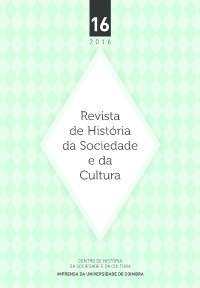Please use this identifier to cite or link to this item:
https://hdl.handle.net/10316.2/40961| DC Field | Value | Language |
|---|---|---|
| dc.contributor.author | Gomes, João Pedro | - |
| dc.date.accessioned | 2017-01-13T14:26:44Z | |
| dc.date.accessioned | 2020-09-29T22:21:06Z | - |
| dc.date.available | 2017-01-13T14:26:44Z | |
| dc.date.available | 2020-09-29T22:21:06Z | - |
| dc.date.issued | 2016 | - |
| dc.identifier.issn | 1645-2259 | - |
| dc.identifier.issn | 2183-8615 (digital) | - |
| dc.identifier.uri | https://hdl.handle.net/10316.2/40961 | - |
| dc.description.abstract | Publicado no ano de 1780, o Cozinheiro Moderno de Lucas Rigaud, cozinheiro régio, tentou estabelecer na sociedade portuguesa do final de Setecentos um novo modelo de gosto e cozinha. Certamente inspirado pela fama alcançada pelo seu companheiro de profissão, Lucas Rigaud faria uma obra à imagem e semelhança do Le Cuisinier Moderne de Vincent La Chappelle, com o claro intuito de introduzir definitivamente a nouvelle cuisine francesa em Portugal, bem como toda a variedade de receitas estrangeiras que a caracterizava. No entanto, o cozinheiro de D. José I não se desvincula por completo das tradições culinárias lusitanas e inclui 14 receitas de pratos “à Portuguesa” e cuja análise permite, em certa medida, conhecer e compreender a persistência de determinadas práticas alimentares, de origens recuadas, e que compõem o que hoje podemos denominar de identidade alimentar portuguesa. | por |
| dc.description.abstract | Published in 1780, the royal cook Lucas Rigaud cookbook Cozinheiro Moderno tried to establish, in the end of the 18th century Portuguese society, a new taste and a new way to cook. Certainly inspired by the fame achieved by his fellow professional, Lucas Rigaud did a work in the image and likeness of the Le Cuisinier Moderne from Vincent La Chappelle, with the clear intention to definitely introduce the nouvelle cuisine in Portugal, as well as the entire range of foreign recipes that characterized it. However, the King Joseph I cook doesn’t completely cut with the Lusitanian culinary traditions and includes 14 recipes of dishes made by “the Portuguese way”, the analysis of which allows us to understand the persistence of certain dietary practices with ancient roots, creating what today we can call the Portuguese food identity. | eng |
| dc.language.iso | por | - |
| dc.publisher | Imprensa da Universidade de Coimbra | - |
| dc.rights | open access | - |
| dc.subject | Portuguese food identity | eng |
| dc.subject | cookbooks | eng |
| dc.subject | Lucas Rigaud | eng |
| dc.subject | food heritage | eng |
| dc.subject | 18th century | eng |
| dc.subject | identidade alimentar portuguesa | por |
| dc.subject | livros de cozinha | por |
| dc.subject | Lucas Rigaud | por |
| dc.subject | património alimentar | por |
| dc.subject | século XVIII | por |
| dc.title | Cozinhar “á Portugueza” com Lucas Rigaud: identidade alimentar portuguesa no Cozinheiro Moderno | por |
| dc.title.alternative | Cooking “á Portugueza” with Lucas Rigaud: portuguese food identity in the Cozinheiro Moderno | por |
| dc.type | article | - |
| uc.publication.collection | Revista de História da Sociedade e da Cultura vol. 16 | - |
| uc.publication.firstPage | 243 | - |
| uc.publication.lastPage | 270 | - |
| uc.publication.location | Coimbra | - |
| uc.publication.journalTitle | Revista de História da Sociedade e da Cultura | - |
| uc.publication.volume | 16 | por |
| dc.identifier.doi | 10.14195/1645-2259_16_11 | - |
| uc.publication.section | Artigos | - |
| uc.publication.orderno | 12 | - |
| uc.publication.area | Artes e Humanidades | - |
| uc.publication.manifest | https://dl.uc.pt/json/iiif/10316.2/40961/247277/manifest?manifest=/json/iiif/10316.2/40961/247277/manifest | - |
| uc.publication.thumbnail | https://dl.uc.pt/retrieve/11844124 | - |
| item.grantfulltext | open | - |
| item.fulltext | With Fulltext | - |
| Appears in Collections: | Revista de História da Sociedade e da Cultura | |
Files in This Item:
| File | Description | Size | Format | |
|---|---|---|---|---|
| cozinhar_a_portugueza_com_lucas_rigaud.pdf | 3.76 MB | Adobe PDF |  |
Items in DSpace are protected by copyright, with all rights reserved, unless otherwise indicated.
